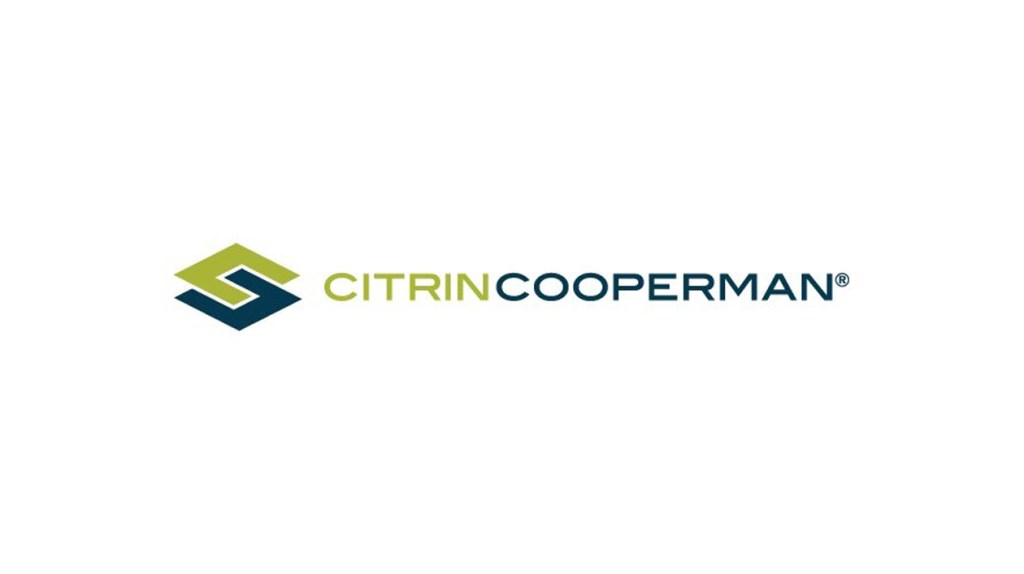Business
Page: 149
Travis Scott, SZA and Future are facing a copyright lawsuit over allegations that they stole key elements of their 2023 hit “Telekinesis” from an earlier track.
In a complaint filed Wednesday in Manhattan federal court, Victory Boyd (a singer signed to Jay-Z‘s Roc Nation record label) says the stars copied lyrics and other elements from her 2019 song “Like The Way It Sounds” and used them in “Telekinesis,” which spent 11 weeks on the Hot 100.
“Scott, Sza, Future and all defendants intentionally and willfully copied plaintiffs’ original work, specifically plaintiff’s lyrics, when they commercially released the infringing work,” write Boyd’s lawyers.
Trending on Billboard
Boyd claims that she initially shared “Like The Way” with Kanye West, who then recorded it as a track called “Ultrasounds.” West (who is not named in the lawsuit) then allegedly shared the song with Scott, who then shared it with SZA and Future.
“Scott gained access to the studio plaintiff left the original work in and began creating the infringing work,” Boyd’s lawyers write. “In May of 2023, Scott, SZA and Future agreed to create the infringing work by copying plaintiff’s original work.”
Notably, the lawsuit say the stars have essentially admitted to using her song. When “Telekinesis” was first uploaded to streaming platforms, Boyd’s lawyers say she was credited as a co-writer in the metadata. More recently, they say she’s been offered an 8 percent songwriting credit to resolve the dispute.
But Boyd appears focused on the fact that she “never granted permission” for her song to be used in the first place – saying the track had been taken without her “authorization, knowledge or consent.”
Also named as a defendant in the lawsuit is Audemars Piguet, a Swiss watchmaker that has partnered with Scott’s Cactus Jack brand for a collaborative line of watches. Boyd says the company used “Telekinesis” in advertising videos even after she and her publisher expressly refused their request for a license.
“The defendants and AP partnered to publish and commercially release an advertising campaign broadcasting the infringing work over the plaintiff’s objection,” her lawyers write.
The connection between “Telekinesis” and Boyd is hardly a secret. On the crowd-sourced lyrics database Genius, fans have noted that the song was “originally written by Victory Boyd as a gospel song” for West, then was “passed around many artists” before it “eventually ended up being a Travis song.”
Reps for Scott, SZA and Future did not immediately return requests for comment.
As Billboard publishes its 137th volume throughout 2025, stay in the know on the magazine’s print schedule for the year, along with each issue’s corresponding theme. This is an updating post, so be sure to check back for any changes.
Issue Date: Jan. 11, 2025Theme: Managers to Watch/Quarter-Century Charts
Issue Date: Jan. 25, 2025Theme: The Billboard Power 100
Issue Date: Feb. 8, 2025Theme: Sports*This issue will include Top Music Venues
Trending on Billboard
Issue Date: March 8, 2025Theme: SXSW/Branding Power Players
Issue Date: March 22, 2025Theme: Women in Music
Issue Date: April 19, 2025Theme: TBD*This issue will include Top Music Lawyers
Issue Date: May 10, 2025Theme: AAPI Heritage Month/40 Under 40*This issue will include International Power Players
Issue Date: May 31, 2025Theme: Country Power Players
Issue Date: June 7, 2025Theme: Indie
Issue Date: June 21, 2025Theme: Pride
Issue Date: July 19, 2025Theme: Fashion
Issue Date: Aug. 16, 2025Theme: Fall Music Preview
Issue Date: Aug. 30, 2025Theme: R&B/Hip-Hop Power Players
Issue Date: Sept. 27, 2025Theme: Latin Power Players
Issue Date: Oct. 4, 2025 (Double Issue)Theme: Grammy Preview/Producers
Issue Date: Oct. 25, 2025Theme: Touring*This issue will include Top Music Business Schools
Issue Date: Nov. 15, 2025Theme: BBMAs*This issue will include Top Business Managers
Issue Date: Dec. 6, 2025Theme: Grammy Voter Guide
Issue Date: Dec. 13, 2025Theme: No. 1s/Year in Music
We’re a week into 2025, and Elon Musk and Mark Zuckerberg have gone full MAGA and parts of Los Angeles are burning.
Much like the world in general, the music business seems to be at an inflection point, its dominant subscription-streaming business model challenged by its success. As growth slows in the U.S. and Europe, labels and artists must contend with an avalanche of new music, disruption from distribution startups, and a possible ban on TikTok in the U.S. Then there’s the looming threat of generative artificial intelligence, which raises the uncomfortable prospect that computers could write songs about a dark future in which computers write songs about a dark future.
In a lighter spirit, here are my predictions for the coming year: the good, the bad, the ugly — and the nerdy.
TikTok’s time will not run out — but the issue won’t go away
Trending on Billboard
The case against TikTok is tighter than many people assume — the U.S. has always restricted foreign ownership of some media (which is why Sony is the only company that owned a movie studio but not a television network). But at a time when both political parties need to show that they matter to young people, the availability of TikTok is a tempting problem to solve. So it’s easy to imagine a compromise — which will last unless tensions rise with China and mysteriously popular videos portray Taiwan as a breakaway province.
Catalogs will continue to sell — but it will be obvious that some were overvalued
The market for publishing catalogs and other rights depends mostly on economics, but demographics matter, too. Baby Boomer performers and songwriters are at an age when they’re doing estate planning, and since many have led complicated personal lives, it’s often simpler to sell assets rather than divide them. That, and streaming growth, will keep the market steady overall. But it will emerge that at least some of these acquisitions weren’t worth the price. Any market only has so many blue-chip assets.
Trump’s administration will settle the federal antitrust case against Live Nation — but some states won’t back off
President Joe Biden’s administration made antitrust a priority, and the Justice Department’s case against Live Nation symbolized its ambition. (The case is complicated.) Most Republicans disdain antitrust enforcement and vice-president-elect JD Vance seems to favor it, but Trump’s consistent desire for visible wins on popular issues will tempt him to settle and declare victory. The states that joined the Justice Department case might not agree, however, and they could continue to pressure the company in other ways.
This will be the winter of our diss-content — but it will not last
Some feuds only have winners. Together, the six tracks at the center of the rap battle between Kendrick Lamar and Drake generated nearly $15.4 million in streaming, digital sales and publishing revenue by late November, according to a Billboard estimate based on Luminate data. No wonder the Drake freestyle “Fighting Irish” already appeared briefly on Jan. 3. Expect a few more lyrical salvos, one or two of which could do well. After that, hip-hop fans will move on.
More mergers are coming — at high prices
The Trump administration may move to limit market concentration in technology and some sectors of the media business, but the recorded music business won’t be a priority. If European regulators approve Universal Music Group’s acquisition of Downtown Music Holdings, another label group will buy another distributor. At what price, though? Companies, like catalogs, are selling for high multiples — especially distributors, which are strategically important to maintain market share and ensure access to talent. How much is too much? We’ll soon find out.
Concert ticket prices will keep rising — while Live Nation gets the blame and the money
As my colleague Dave Brooks points out, some concertgoers have had sticker shock longer than others have been alive, yet they keep paying top dollar to see their favorite artists. Prices will rise most for big shows, boosted by FOMO and the ability to tell everyone you were there on social media. Live Nation will take the blame and make more money, even though prices have more to do with supply and demand — there are only so many tickets to go around.
“Streaming 2.0” will take off — and we’ll figure out what it means
Subscription streaming saved the recorded music business, but its flaws are starting to show. Online platforms are full of AI elevator music and sped-up versions of existing songs. Meanwhile, rightsholders are pushing for a price increase. The solution, according to UMG, is “Streaming 2.0,” a concept introduced at UMG’s capital markets day presentation and mentioned again in the company’s announcement of its new deal with Amazon Music. The basic idea is to segment pricing, to drive up ARPU by offering more value to superfans. This is the year we’ll get some details.
Streaming services will set themselves apart from rivals — at least a little
The tiered pricing model implied by Streaming 2.0 means online platforms could be incentivized to offer additional content or functionality for superfans. Exclusives died in 2016, when the industry’s focus was on adding subscribers. Now it needs to get some of them to pay more. Imagine extra tracks, like those that go to big-box retailers, or behind-the-scenes video — content that’s worth something to a relatively small number of superfans but won’t capture the interest of casual fans.
Emerging markets will keep emerging — but will stay that way for some time
As streaming growth slows in the U.S. and Europe, all eyes are on emerging markets — countries in South America, Africa and the Middle East. The growth is impressive, and the excitement is palpable, but some of these markets account for so little revenue that it will take some time for them to matter as much as people expect. For the next decade, most of them will bring in less revenue than vinyl records in the U.S.
At least one major star will go all-in on Trump — and many fans won’t care
As Trump prepares to take office, the resistance is losing its persistence — especially in the media business. Walt Disney Company CEO Bob Iger signed off on subsidiary ABC’s settlement with Trump, and Meta CEO Mark Zuckerberg announced that the company would prioritize free speech, in a way that looks like he kissed Trump’s ring. Before 2026, at least one major pop star will follow, either out of genuine enthusiasm or just because it’s easier. The expected outrage will not materialize.
Lyndsay Cruz, who has served as executive director of the Academy of Country Music’s Lifting Lives philanthropic arm since 2019, has stepped down.
The shift comes as the organization seeks a director based in Nashville. The Academy moved its headquarters from Los Angeles to Nashville in December 2022. Cruz, who is looking for other opportunities, lives in Los Angeles with her family where the Academy had been based.
“I am so proud of the work that my team and I accomplished during my time at ACM Lifting Lives. With a focus on health-related initiatives, we were able to help the country music industry through the COVID-19 pandemic and the continuing mental health crisis, all while working to remove the stigma around mental health struggles,” said Cruz, who was on Billboard’s Country Power Players list in 2022 and 2023 and on Billboard’s Women in Music list in 2023.
During Cruz’s tenure, Lifting Lives raised more than $6 million. More than $4 million was disbursed from Lifting Lives’ COVID-19 fund to over 2,000 people in 42 states. Lifting Lives’ mental health fund, which was created as COVID-19 waned, has handed out $400,000 in grants to individuals and organizations that prioritize mental health support for those working in the country music industry.
Trending on Billboard
“It was only with the help of the passionate people in the industry who are willing to give back that we were able to raise and distribute over $6 million during my time leading ACM Lifting Lives. We had artists like Lainey Wilson, Morgan Wallen, Jelly Roll, Luke Bryan, and so many others step up to help when they knew others needed it,” Cruz said. “Some of the moments that stick out in my head over the past few years include our Covid fund, mental health focus, music therapy programs and mostly, the industry and artists stepping up to support Lifting Lives with their time and resources. Jelly Roll and Lainey Wilson singing ‘Save Me’ at the ACM Awards in 2023 inspired by ACM Lifting Lives mental health related work was one of the top highlights of my time with the organization.”
Cruz says she hopes to continue to work in philanthropy as she believes deeply in the mission of such organizations as Lifting Lives — as both executive director and someone who needed help.
“As I leave my post, I want to reiterate how important the support for organizations like this is, and for individuals going through struggles,” Cruz says. “The mental health crisis is so prevalent, especially in the entertainment and music industries, and I’m proof of that. I’ve had recent struggles with mental health, having to step away from my role for a moment to take care of myself and give permission to feel. It’s been life-changing to get a handle on my own life and focus on what’s really important, and I will continue to do that moving forward, and help others with their struggles.”
The Academy has not yet begun its search for her replacement.
Sony Music Publishing Nashville has renewed its publishing agreement with GRAMMY-winning country singer/songwriter Lainey Wilson. Also a CMA and ACM Entertainer of the Year winner, Wilson is one of the most popular voices in Nashville today with hits like “Watermelon Moonshine,” “Heart Like A Truck” and collaborations with other top talents like Cole Swindell, Jelly Roll and HARDY. Wilson is also known for her role on the hit Paramount + series Yellowstone.
Warner Chappell Music Benelux has signed Australian DJ CYRIL. One of Australia’s fast rising stars in electronic music, CYRIL hit the scene as an instant sensation with 2023’s “Sumblin’ In.” He continued the momentum in 2024 with a remix of Disturbed’s “Sound of Silence.”
Kobalt has signed a global publishing deal with acclaimed Mexican folk artist Kevin Kaarl. From Meoqui, Chihuahua, Mexico, the 24-year-old artist and songwriter already has three albums out to date, and he has done it all independently. Now, Kaarl is putting the finishing touches on his fourth album Ultra Sodade, expected to release later this year.
Trending on Billboard
Concord Music Publishing has signed Justin Donahue to a global co-publishing agreement. Professionally known as Jung Youth, the singer/songwriter/producer’s deal will include his full catalog and all future works. Over the last few years, Jung Youth has established himself through credits on tracks like NCT 127m Tomee Prott, CHERUB, Social Club Misfits Devon Again and Snow Wife, and he also has his own solo artist project dating back to 2017.
Splice is launching the country music genre in its Create AI tool, which allows producers, songwriters and instrumentalists to easily search for samples among Splices multi-million track catalog to use in their original songs. This tool also uses AI to create stacks of samples from the Splice library that work well together, allowing creatives to kick start the songwriting process in a new, user-friendly way. While AI is used to aid in searching and pairing up sounds, all the samples available in Splice Country (and in Splice overall) are human made. Splice Country samples include performances from Nashville musicians like Devin Malone (Jelly Roll, Carrie Underwood) and Kate L. Malone (Sam Hunt, Emma White)
Story House Collective has launched a joint venture with Essential Music Publishing. As part of the partnership announcement, the two companies have jointly signed songwriter and producer Matt Armstrong, best known for working with Christian hitmakers like Casting Crowns, Passion, Bethel Music, Chris Tomlin and more.
Warner Chappell Music and Ned Cameron have signed Nashville-based talent HALLIE to a global publishing agreement. HALLIE’s work as a producer and songwriter spans many genres, including pop, country, rock, hip-hop, k-pop and more. “I’m thrilled and honored to begin this journey,” she says of the new deal.
Centricity Music has signed Rachel Purcell to an exclusive record and publishing deal. From Muscle Shoals, Ala., Purcell has seen success as an artist, recording under her maiden name, Rachel Wammack, but she is ready to reintroduce herself — this time as a faith-based artist and songwriter. Now that she is fully stepping into the realm of Christian songwriting, she says it has all felt “very divine… The songs would finish themselves before I could even get it all out.”
Liberty Media, a major shareholder in Live Nation and SiriusXM, named Derek Chang as its new president/CEO, the company announced Wednesday (Jan. 8). He will begin his new role on Feb. 1. Liberty Media chairman John Malone will serve as interim CEO in the meantime. Chang’s hiring follows the departure of longtime CEO Greg Maffei, […]
As a trio of devastating wildfires continues to spread through the greater Los Angeles region, music and music-related events — including several tied to the current film awards season in the city — are being canceled or postponed out of both safety concerns and respect for the unfolding situation.
As postponement and cancellation announcements continue to come through, we’re keeping track with the updated list below. (These are listed in descending order of announcement, so you can find the latest cancellations at the top.)
Better Man premiere
Paramount Pictures canceled the L.A. premiere of its forthcoming Robbie Williams biopic Better Man on Wednesday (Jan. 8), with a studio spokesperson stating, “Due to the dangerous conditions affecting Los Angeles we are canceling tomorrow’s premiere of ‘Better Man.’ Our thoughts are with those impacted by the devastating fires resulting from these conditions, and we encourage everyone to stay safe and follow guidance and orders from local officials and government agencies.”
Critics Choice Awards
The annual film and TV awards ceremony — which boasted nominees including Miley Cyrs, Trent Reznor & Atticus Ross, Selena Gomez and Maren Morris in the Best Song category — was postponed from Sunday (Jan. 12) to Jan. 26 at the Santa Monica Airport’s Barker Hangar. “This unfolding tragedy has already had a profound impact on our community. All our thoughts and prayers are with those battling the devastating fires and with all who have been affected,” said Critics Choice Association CEO Joey Berlin in a statement.
Unstoppable premiere
A red-carpet screening of the wrestling drama starring Jennifer Lopez set for the DGA in West Hollywood on Tuesday night (Jan. 7) was also canceled due to the fires. “In light of today’s safety concerns around heightened wind activity and fire outbreaks in Los Angeles, we regret to inform you that we are canceling tonight’s premiere of ‘Unstoppable,’” said the studio in a statement. “As much as we were looking forward to celebrating this wonderful and inspiring film with you, safety is our first priority. We encourage everyone to watch ‘Unstoppable’ on Prime Video, which will be available globally on January 16. Thank you for your understanding and please stay safe.”
Emilia Perez music event
An event in Hollywood to celebrate the music of the Netflix film starring Selena Gomez that was set to be attended by songwriters/composers Camille & Clément and star Karla Sofía Gascón was canceled by the streamer.
A Complete Unknown screening and dinner
A screening and dinner for the Bob Dylan biopic starring Timothee Chalamet set to take place at the San Vicente Bungalows in West Hollywood on Thursday (Jan. 9) was postponed.
American Cinematheque Tribute to the Crafts
The ceremony, which celebrates individuals in 14 filmmaking categories from the past year, including music, was postponed from Thursday (Jan. 9) at Hollywood’s Egyptian Theatre, with a new date to be announced later. “We have made the decision to postpone tomorrow’s (January 9th) Tribute to the Crafts at the Egyptian due to the dangerous ongoing fires and wind conditions. We will update you on a new date as soon as we know,” said a statement released by the organization.
Selena Gomez’s Rare Pop Up
A pop-up event slated from Friday to Sunday (Jan. 10-12) at Complex LA to celebrate five years of Gomez’s Rare album was postponed.
Following a recent license review, London dance venue Drumsheds has been allowed to remain open but was ordered to enforce new safety measures at its events.
Located in Tottenham, a northern suburb of the capital, the 15,000-capacity venue was reported as being at risk of losing its license late last year. This followed a number of serious incidents on the premises and a subsequent investigation launched by Enfield Council.
On Oct. 12, 2024, a 27-year-old man died after attending a Drumsheds event, an incident believed to have been drug-related (as per The London Standard). On Dec. 7, a 29-year-old woman also died after a show by Belfast dance duo Bicep at the venue, with police stating the tragedy was also connected to drug usage. An emergency licensing review was called after the latter incident.
Trending on Billboard
In November, meanwhile, a man was stabbed inside Drumsheds, with emergency services called to the scene. No arrests have been made in connection with any of these three incidents. The stabbing was later confirmed by police to be non-fatal.
Following a meeting held by Enfield Council Tuesday (Jan. 7), it has been ruled that Drumsheds has permission to remain open, but will need to operate under specific safety measures going forward. The space — a repurposed IKEA unit — will now boast an increased police presence during events, and any serious incidents on the premises must be reported to emergency services immediately.
Issues with the organization of the venue were highlighted online last month, when a public petition was launched amid claims of “overcrowding” at Drumsheds events following a surplus of social media posts related to “unsafe queues.” This happened at the 15th anniversary celebration for U.K. bass label UKF, which took place on Dec. 13 and was headlined by Pendulum, Nero and Knife Party.
As per Mixmag, however, the review findings from the meeting have stated that the venue will not have to reduce its capacity, nor implement mandatory ID scanning and “bomb detection dogs.” It isn’t yet clear how the new measures will impact upcoming events at Drumsheds. The first scheduled event following the review, billed as Red Bull’s Culture Clash, is set to be held on Mar. 8. The line-up features London DJs Jyoty, Kenny Allstar and Teezee.
A Blackstone-led group of investors is buying a majority stake in Citrin Cooperman, which owns one of music’s most important valuation firms. The Financial Times has reported that this deal gives the target an enterprise value of $2 billion. As part of the transaction, Blackstone is acquiring New Mountain Capital’s stake in the firm.
As the music industry’s catalog market grew red hot over the last decade, Citrin Cooperman has become a leading expert, helping buyers and sellers determine the value of musical IP. Its Music Economics and Valuation Services practice is co-led and founded by Nari Matsuura. It is also co-led by Barry Massarsky, who joined the firm after it acquired his own company, Massarsky Consulting, in 2022. The team’s many clients include power players like Hipgnosis Songs Fund, Primary Wave and Reservoir Media, and it has reportedly overseen roughly 750 catalog valuations worth more than $15.5 billion between 2021 and 2022 alone.
But the firm does far more than just music catalog valuations. Founded in 1979, Citrin Cooperman is a trusted advisor to more than 15,000 clients globally through various tax advisory and accounting services.
Trending on Billboard
In late 2023, Citrin Cooperman was involved in a controversy surrounding its client, Hipgnosis Songs Fund. At the time, Hipgnosis announced that it would cancel a planned quarterly dividend payment to shareholders, due to a decision it said was made by Citrin Cooperman to reduce its expectations of retroactive payments from the Copyright Royalty Board’s Phonorecords III ruling by more than 50%, which it called an “industry-wide” issue. Billboard spoke to other catalog owners at the time who disputed the claim that this was “industry-wide,” saying there had been no recent updates regarding Phono III and that it seemed like a situation unique to Hipgnosis and Citrin Cooperman.
Deutsche Bank Securities Inc. is serving as financial adviser to Blackstone in the transaction, while Kirkland & Ellis LLP and Gibson, Dunn & Crutcher LLP are serving as its legal advisers. Guggenheim Securities, LLC is serving as lead financial advisor to New Mountain and Citrin Cooperman, with Koltin Consulting Group serving as an additional financial adviser to both parties. Simpson Thacher & Bartlett LLP, Zukerman Gore Brandeis & Crossman, LLP, and Hunton Andrews Kurth LLP are serving as legal advisers to New Mountain and Citrin Cooperman.
Alan Badey, CEO of Citrin Cooperman, said of the deal, “We are excited to have reached an agreement for Blackstone to invest in Citrin Cooperman as we enter our next chapter of growth. Blackstone will help us make additional investments in expanded service offerings and technology as we deliver on our continued commitment to best-in-class firm culture and providing an exceptional client experience. We thank New Mountain for their years of partnership in helping to build and support our business.”
Eli Nagler, a senior managing director at Blackstone, and Kelly Wannop, a managing director at Blackstone, said, “The Citrin Cooperman partners and staff have done an exceptional job making the firm a leader through an unwavering commitment to excellence and client service. We are excited to invest in the business to help it continue to provide the highest quality offerings moving forward.”
Andre Moura and Nikhil Devulapalli, managing directors at New Mountain, added, “We are proud of our successful partnership with Citrin Cooperman, and we thank the management team, partners and staff of Citrin Cooperman for all we have accomplished together over the last three years. We look forward to seeing Citrin Cooperman continue to thrive for the benefit of all its clients and stakeholders.”
Weeks after Cardi B warned a federal bankruptcy judge that Tasha K was hiding money to avoid paying a multi-million dollar defamation verdict, the gossip blogger is now complaining that the superstar rapper is trying to “sabotage” her career and “silence” her.
In a response motion, attorneys for Tasha (Latasha Kebe) deny that she “acted in bad faith” and say attorneys for Cardi (Belcalis Marlenis Almanzar) “did not identify a cent of undisclosed value.” Instead, they say Cardi is simply trying to derail the bankruptcy case, a move they say would effectively destroy her ability to earn money.
“[Cardi B] is not acting in her economic interest,” writes Tasha’s bankruptcy attorney Chad Van Horn in the motion, lodged in court on Tuesday. “She seeks to sabotage debtor’s career.”
Trending on Billboard
The filing is the latest wrangling in Cardi’s long-running efforts to collect on a huge judgment she won against Tasha for making false claims about drug use, STDs and prostitution on YouTube and social media. In 2022, a federal jury found that those statements were defamatory and ordered the blogger to pay the star $3.9 million in damages.
Since then, Cardi has repeatedly vowed to recover that money by any means necessary — saying “imma come for everything” and “bitch better have my money.” Tasha filed for Chapter 11 bankruptcy in 2023, saying she still owed $3.4 million to Cardi and had less than $60,000 in assets. But the rapper has pursued her, later winning a ruling that Tasha couldn’t use the bankruptcy process to “discharge” the judgment.
In a motion last month, Cardi’s attorneys demanded that the bankruptcy case be dismissed entirely, accusing Tasha of orchestrating a “long-running fraudulent scheme to shield debtor’s assets and income from creditors.” They said she had fraudulently transferred and concealed money, and had lied to both Cardi and the federal courts.
“It is clear and irrefutable that debtor has admittedly and repeatedly engaged in bad faith conduct to hinder, delay, and defraud Ms. Almánzar from collecting on the amended defamation judgement,” the star’s lawyers wrote “This court should not allow debtor to further abuse the bankruptcy process.”
A day after Cardi filed her motion to dismiss, the court-appointed trustee – a neutral third party who helps shepherd a bankruptcy case toward a repayment plan – filed her own motion endorsing Cardi’s arguments and urging the judge to dismiss Tasha’s bankruptcy case.
With Monday’s response filing, Tasha’s attorneys urge the bankruptcy court to refuse those requests. Among other things, they argue that Cardi’s filing is merely retaliation after Tasha refused to sign a gag order that would bar her from ever discussing Cardi again. That order, they say, would impose “unreasonable restrictions on her First Amendment rights” and prevent her from earning a living as a social media creator.
“Having failed to bully debtor into accepting an overarching non-disparagement clause, Claimant filed the motion to dismiss to harm debtor’s career and end debtor’s bankruptcy case,” Tasha’s lawyers write in Tuesday’s motion. “Claimant is not acting in her economic interest, but seeks to silence debtor by ending her bankruptcy case and her career.”
Attorneys for both sides did not return requests for comment on Wednesday.

 State Champ Radio
State Champ Radio 










